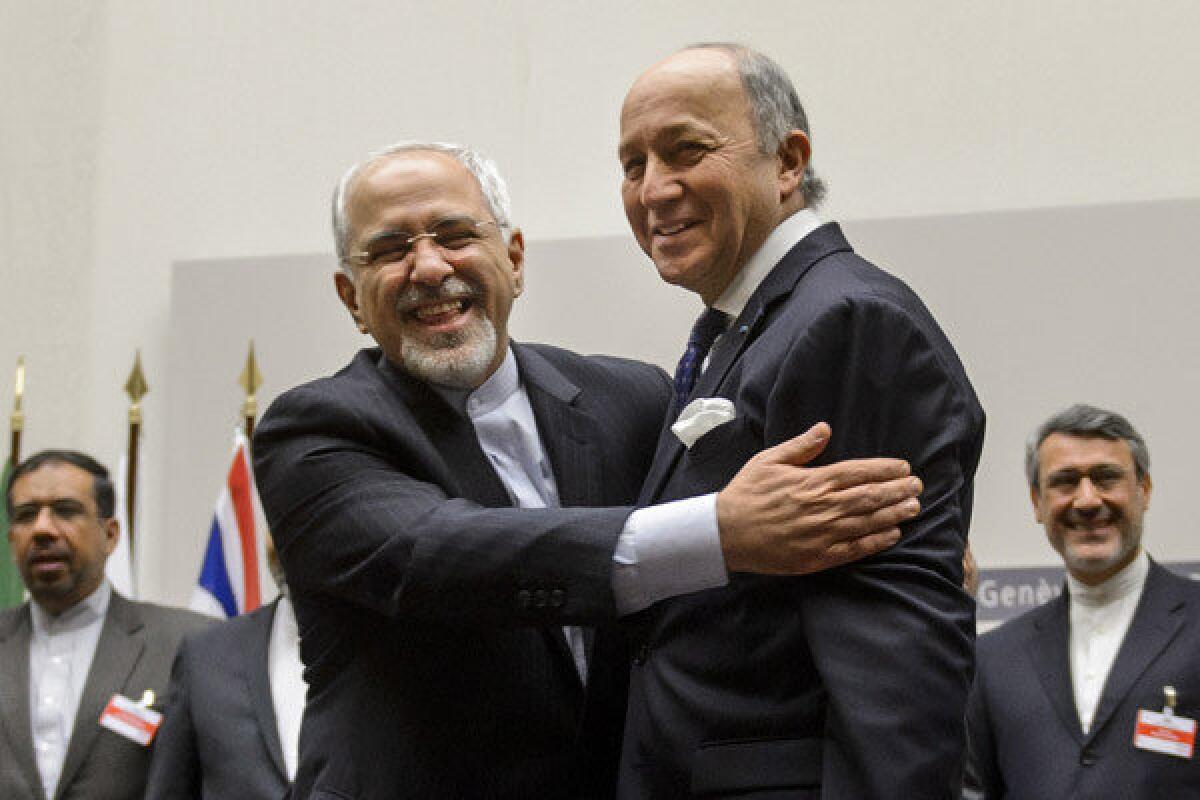Initial agreement reached with Iran on nuclear development

- Share via
GENEVA – Six world powers and Iran reached a preliminary agreement to curb Iran’s disputed nuclear program early Sunday after a marathon negotiating session, potentially ending a decade of stalemate.
After four days of up-and-down negotiations that repeatedly appeared ready to collapse, officials announced they had agreed on a deal aimed at giving Iran limited sanctions relief in return for temporary curbs on its nuclear program.
“We have an agreement,” Mohammad Javad Zarif, the Iranian foreign minister, said on his Twitter account at 3:03 a.m. Geneva time.
Laurent Fabius, the French foreign minister, flashed a thumbs-up as he departed the hotel where the seven nations had conducted talks that began about 18 hours earlier.
The deal could ease what has been long viewed as one of the world’s most urgent security challenges. Iran is believed by some experts to be close to acquiring bomb-making capability, and the Obama administration has threatened to use force, if necessary, to prevent it from acquiring a nuclear weapon.
Statements were expected within an hour from Zarif and foreign ministers of the six countries: the United States, France, Britain, Russia, China and Germany. President Obama is to speak at 7 p.m. PST, officials said.
The deal is a first step, intended to open the way for even tougher bargaining over a long-term comprehensive agreement.
Even though the six countries and the new government in Iran have been eager for a deal, they have clashed over a series of issues related to how closely supervised the Iran’s huge nuclear program will be, and how much relief it will get from the penalties that have been crushing its economy.
It was not immediately clear which side had prevailed on key issues.
The six powers have been pushing, for example, to limit progress at a partially built heavy water nuclear plant. Iran has also been seeking recognition that it is entitled to enrich uranium for energy and medical purposes.
The deal is likely to come under immediate fire from critics in Congress, Israel and the Persian Gulf states, who fear the deal will be too lenient and will open the way for Iran to cheat and secretly acquire a nuclear weapons capability.
ALSO:
Philippines typhoon death toll exceeds 5,000, but ‘worst is over’
Despite U.S. pressure, Karzai sticks by plan to delay signing pact
British seek answers in case of 3 women bound by ‘invisible handcuffs’
paul.richter@latimes.com
More to Read
Sign up for Essential California
The most important California stories and recommendations in your inbox every morning.
You may occasionally receive promotional content from the Los Angeles Times.











